"There are no blacks here": how the contribution of slaves and people of African descent was erased from the history of Argentina and Chile
"There are no blacks here": how the contribution of slaves and people of African descent was erased from the history of Argentina and Chile
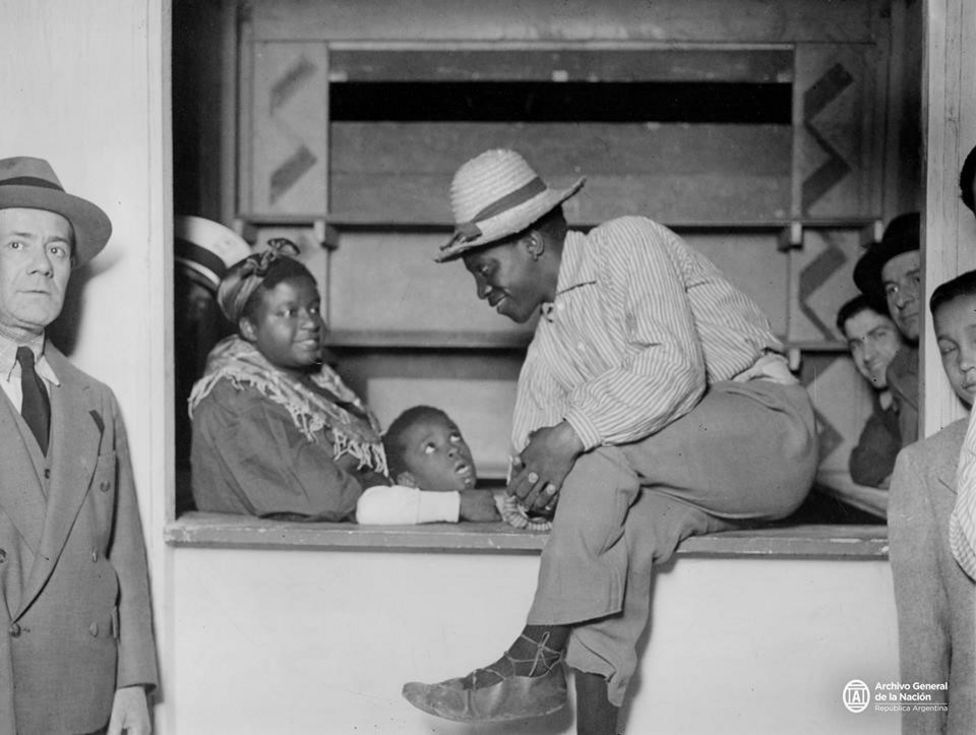 ARCHIVO GENERAL DE LA NACIÓN ARGENTINA INV: 13862
ARCHIVO GENERAL DE LA NACIÓN ARGENTINA INV: 13862
"Many times in my own country I have passed as a foreigner only because of my color, my curly hair, and I have to say with pride that I am Chilean, having to endure the disbelief of many and many."
These words of the activist Marta Salgado describe the reality that many Afro-descendants have to face nowadays both in Chile and in neighboring Argentina, countries where it is not strange to hear a phrase that has become commonplace: "Here there is no blacks ".
Although it is true that historically the percentage of black population in these two countries has been much lower than in other Latin American nations, things were different at the time of the colony .
According to historical records, 200 years ago in cities such as Buenos Aires and Santiago, black people came to represent more than 20% of the population, a figure that could reach 60% in other places where slave labor brought from Africa was central to local economies.
Experts agree that for decades, historians in both Chile and Argentina, determined to build a national identity based mainly on the European heritage , obviated the crucial contribution of slaves and their descendants to the economic, cultural and political development of both countries.
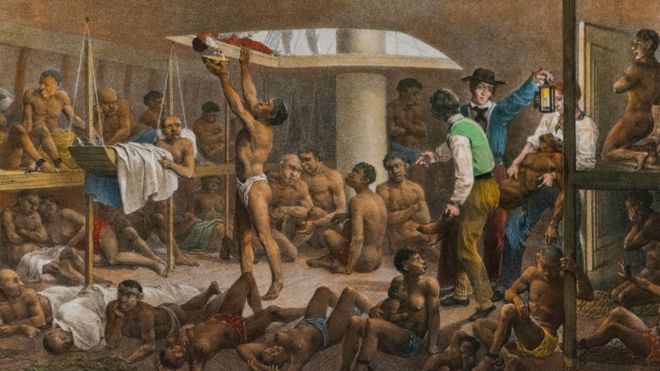 GETTY IMAGES
GETTY IMAGES
When the presence of blacks was not denied, it tended to relativize it with arguments like that there were very few who arrived or those who did, either left, or died in the war or did not survive due to the cold and diseases.
In neighboring Uruguay, however, the presence of people of African descent has been constant since the time of the colony - currently representing around 8% of the population of the country - and, despite the historical discrimination suffered by this collective The Afro heritage is present in important cultural manifestations of the country such as the famous Montevideo carnival.
A different story
The presence of blacks in the Southern Cone is a phenomenon that can be traced back to the times of the conquest in the sixteenth century , when there are already records of people of African descent who arrived as slaves.
"What we know is that in total, throughout the colonial period, about 12 million slaves were trafficked from one continent to another," explains Juan José Martinez Barraza, economic historian at the University of Santiago de Chile.
" 70,000 slaves came to the Southern Cone , mainly to the Río de la Plata, although this seems insignificant, it was not because of what it represented in economic terms for these spaces," says the historian.
"For example, in Santiago in 1777 there were 40,000 inhabitants and in Lima around 50,000, therefore, an influx of 70,000 people, who also reproduced, was significant in economic terms."
The slaves arrived mainly through the ports of Montevideo and Buenos Aires . From there some were sent to the interior provinces of present-day Argentina or to Santiago and Valparaíso, from where they were transferred by sea to the north.
Many of them stayed in the cities to perform domestic or craft work. Others were forced to work in the fields or in the mines.
According to Juan Jose Martinez Barraza, "when the liberal historiography emphasized the nascent republic and left behind the colony, METI or under the carpet everything related to slavery and slaves".
A mother of the black country
 GETTY IMAGES
GETTY IMAGES
In Argentina, historiographical oblivion about the contribution and presence of the Afro-descendant population has been very similar, historian Felipe Pigna explains to BBC Mundo.
"The invisibility of blacks in history is tremendous, they are practically not mentioned," says Pigna.
"There was a manipulation that became official history in the schools, and it remained as canonical history, in which neither women, nor native peoples, nor Afro-descendants had a place."
"Luckily that has been changing and it has been shown that this story was mostly false ."
Pigna gives as an example of this process of invisibility the case of María Remedios del Valle , "who was an afro-descendant who participated in the armies of Manuel Belgrano, one of the liberators, in all his battles."
Because of her contributions, she was proclaimed mother of the Argentine fatherland, "the only woman in our history" , the historian points out.
"But in 1870, when the history of immigration began to be rewritten, they thought that it was not very coherent to have a mother from the Black Homeland, when white immigration was promoted, and they began to ignore it and run it out of history, and that's how they made it disappear. "
This process of concealment of the black inheritance continues to affect Afro-descendants today, who have been struggling for decades to recognize their history and their rights.
"A racist country"
Marta Salgado, president of the Oro Organization, has been one of the most visible faces of the Chilean afrodescendant collective for two decades.
Salgado lives in Arica, a city that Chile snatched from Peru in the late nineteenth century in the Pacific War, a time when more than 50% of the population was of African origin.
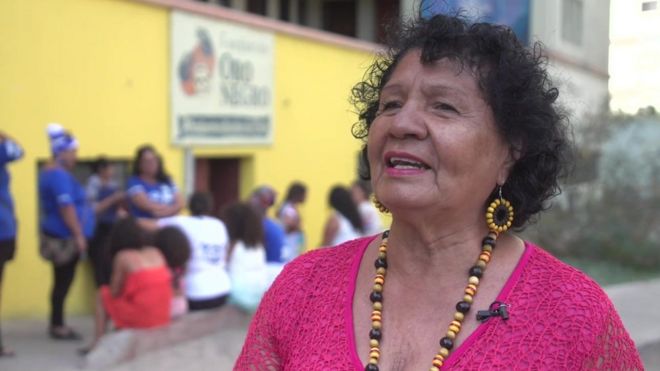 BBC WORLD
BBC WORLD
"We are not in school curricula, the Ministry of Education has never done anything to teach the people of Chile that there were enslaved Africans and therefore there are descendants," Salgado explains in conversation with BBC Mundo.
" Chile is a discriminatory and racist country, and also a xenophobic one , but it is said that it is not, but deep down there is a lot of racism and a lot of discrimination, because it is said that we were born of Europeans and that is not the case".
Salgado has many anecdotes about what he has had to face due to his origin.
"I've gone through Cuban, Peruvian, Colombian ... Many times when I say I'm Chilean they look at me strangely (...) Once I was younger in Santiago they asked me where I was going to do the show, thinking I was from another country ", says the activist.
"They look at you because of your skin color and because of your phenotype and not because of what you are and that is why it costs a person of African descent to position himself, especially if she is a woman".
"I wanted to deny my family"
Cristian Báez, an experiential researcher and afrodescendant activist also resident in Arica, assures that his ancestors underwent a "whitening" process after the city became under Chilean control.
"When Chile takes this place, it tells those who are here that if they want to stay, they have to become Chileans, and that was a very Machiavellian process, they had to be whitewashed so that they would no longer be Peruvianized. traditions and customs that came from an African ancestral heritage ", explains Báez, who is the founder of the NGO Lumbanga.
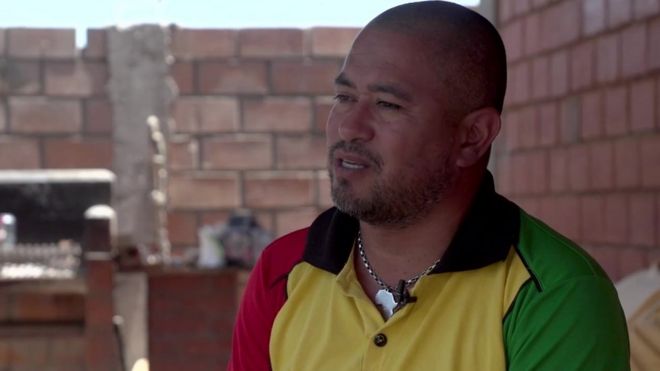 BBC WORLD
BBC WORLD
Báez says that, like many Afro-descendants, he experienced rejection within his own country from an early age.
"At school they discriminated against me for two things, first for being dark-haired and then for living in a rural area, so I suffered a lot of bullying for being black and Azapa ."
"When my colleagues wanted to come to Azapa to my grandmother's plot, I told them not because I was ashamed to know my black grandmother and my black dad, I wanted to deny my family," says the activist.
Báez says that being African-descendent makes him "understand that with each process of struggle," in some way, "I am repairing the damage of what they did to my ancestors."
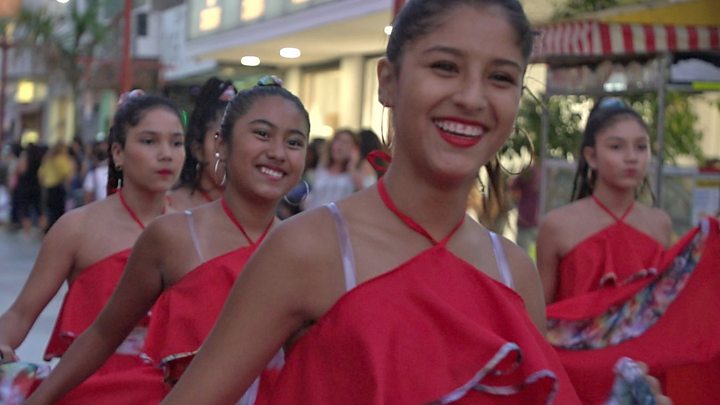
A law that recognizes them
The work of organizations such as Oro Negro and Lumbaga was finally rewarded in April of this year with the enactment in Chile of a law that grants legal recognition to people of African descent , and "their cultural identity, language, historical tradition, culture, institutions and worldview. "
The regulation contemplates its inclusion as a population in the census and that schools teach "the history, language and culture of Afro-descendants."
After the enactment of Law 21,151, Vlado Mirosevic, a member of the Liberal Party and one of the promoters of the regulations, assured that they were "very happy for this step towards a multicultural and diverse Chile ".
For his part, the senator of the Socialist Party for the region of Arica and Parinacota, José Miguel Insulza, said the law "does justice to many Chileans whose ancestors came to this land centuries ago."
It is expected that in mid-June there will be separate events at the National Congress in Valparaíso and at the La Moneda Palace in Santiago to commemorate the enactment of the legislation.
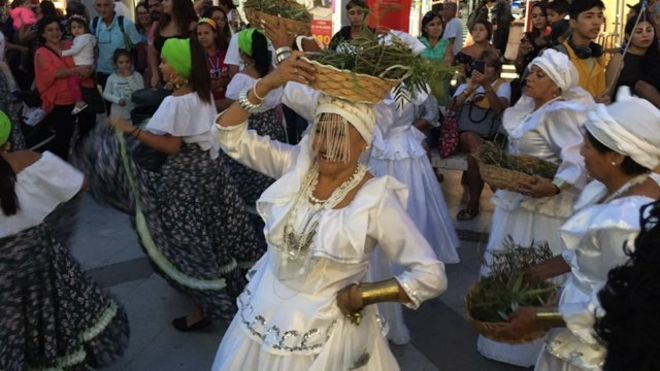 BBC WORLD
BBC WORLD
This political victory was very present in the Afro-descendant Carnival that took place in March in Arica and in which numerous groups and musical groups participated that toured the center of the city in a colorful parade.
This festival full of rhythm and color that takes place every year for more than fifteen years, aims to celebrate the African heritage of a population whose identity has historically been denied.
The process of foreignization
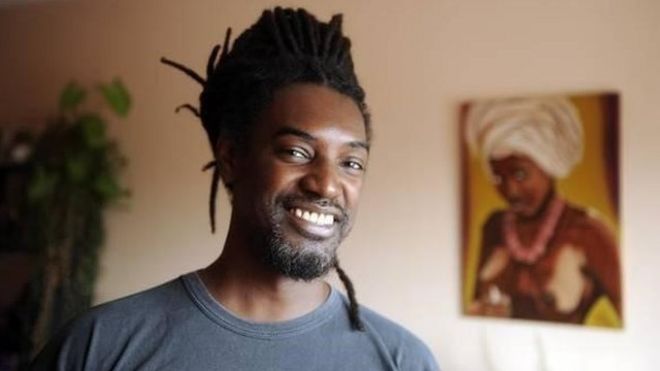 CARLOS ÁLVAREZ
CARLOS ÁLVAREZ
The same struggle that Marta Salgado and Cristian Báez lead in Chile has been carried out in Argentina in recent years by Afro activist Carlos Álvarez Nazareno.
Álvarez, who has lived in Argentina for 15 years, is originally from Uruguay, a country in which, he explains, although there is a greater historical presence of Afro-descendants, he grew up "under the yoke of discrimination, racism and ridicule".
"That happened 30 years ago and it continues to happen today, and our young people continue to denounce racism in the classrooms of their classmates and even the teachers themselves ," he explains.
Álvarez points out how in Argentina historically "the contribution of Spaniards, Italians or Jews has been recognized and the contribution of Afro-descendant and African communities has been denied".
The activist tells how in his daily life he experiences what he describes as a process of "foreignization".
"The first question they ask you on the street is where you are from, what country you come from, and they tell you how well you speak Spanish, when you go to do the same thing, people think that if you are black you can not be these latitudes . "
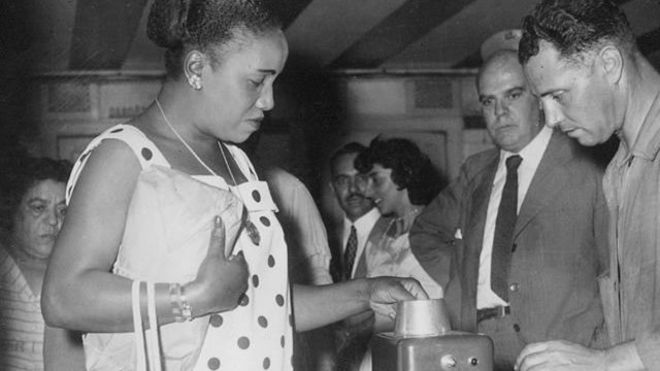 ARCHIVO GENERAL DE LA NACIÓN DE ARGENTINA
ARCHIVO GENERAL DE LA NACIÓN DE ARGENTINA
"That is why the new migrations of African countries suffer racism and police harassment in the streets of Buenos Aires," he says.
Alvarez puts as examples of achievements of the Afro community in Argentina that every November 8 is celebrated in the country the Day of the Afro-Argentines , in tribute to Maria Remedios del Valle.
And to be included in the 2010 census, "in which 150,000 people were recognized as Afro-descendants, although we know that there are more than two million in the country."
There are historians who believe that this figure of two million is exaggerated, although they maintain that we must put an end to the myth that the majority of people of African descent in Argentina died in the wars of independence as "cannon fodder" or because of diseases.
While those were very important factors in the decline of the country's black population, particularly the male population, miscegenation also played a key role , which explains why many Argentines do not know that in their family tree there is a person who Centuries ago it was taken by force from Africa.
Real presence
In Chile, it was also the mestizaje process that made the Afro-descendant population less and less visible.
"The Chilean ethnic group is an ethnic group in which the presence of black blood is real, it is important, but compared to other countries it is not as visible", explains Baldomero Estrada, full professor of the history institute of the Pontifical Catholic University of Valparaíso .
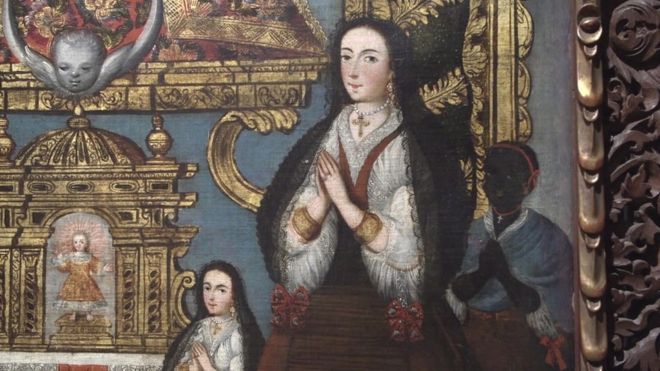 BBC WORLD
BBC WORLD
"90% of the Spaniards who came to this territory were men, so they had to mix with the Indians, and that's where the miscegenation begins, and then when the blacks arrived, the same thing happened, they mixed and were absorbed very quickly" , says Estrada in conversation with BBC Mundo.
"There are no ethnic groups that maintain permanent and visible characteristics, in the case of the Mapuches, they are also very mixed, and it is very difficult to find one who is pure Mapuche."
The grandmother in the closet
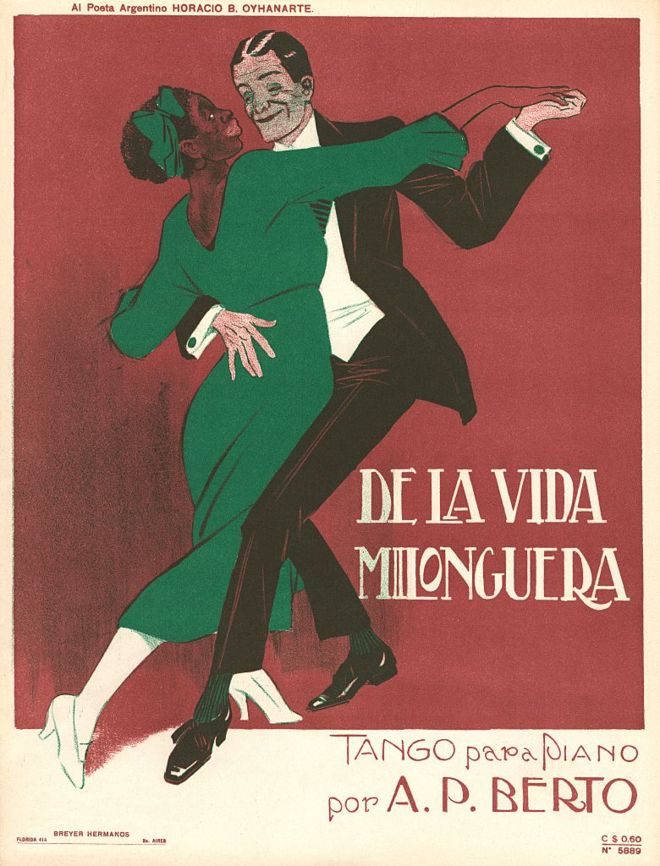 GETTY IMAGES
GETTY IMAGES
Although the genetic inheritance of people of African descent in Chile and Argentina today is not as visible, there is another type of legacy that has survived to this day, according to the historian Felipe Pigna.
" The cultural heritage is very powerful and we can see it in the quintessential Argentine dance that is the tango, which has clearly black origins," the historian points out.
"Much of our folklore - the samba, the chacarera and many rhythms of Argentine folklore - have an African influence, and there are also words from our vocabulary that have been left as an inheritance."
Among those words to which linguists give an Afro origin are words such as quilombo, milonga, candombe, marimba, tango, matungo, mandinga, dengue or maid .
The activist Carlos Álvarez believes that the Argentines have to "take the afro grandmother out of the closet" .
"To have a much more egalitarian and just society, we must value our contribution and that children and adolescents are proud of their ancestors".

Now you can receive notifications from BBC World. Download the new version of our app and activate them to not miss our best content.
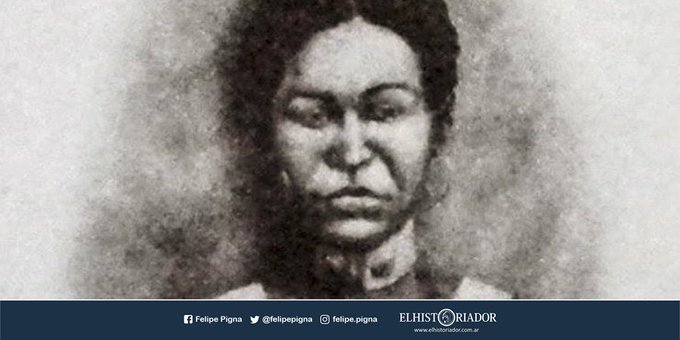

Comments